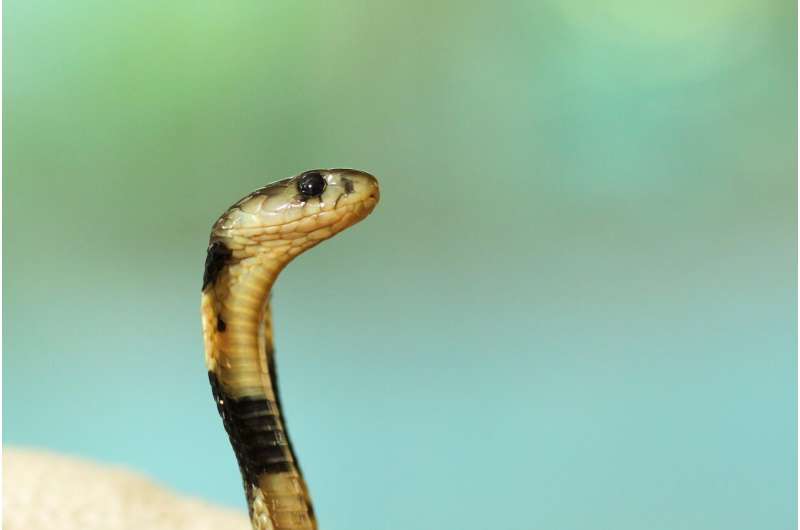Credit: Unsplash/CC0 Public Domain
Climate change is increasing the risk of heat stress and death in cold-blooded animals, a Nature study suggests. With even modest warming scenarios predicted to have a notable impact, the research highlights the vulnerability of animals as a result of global warming.
Ectothermic or cold-blooded animals rely on external sources to regulate their body temperature and their biochemical processes. As a result, they are largely restricted to habitats with permissive temperatures, and although they can endure stressful temperatures to some degree, their tolerance is limited by the duration and intensity of the heat stress.
To gauge their thermal sensitivity, Johannes Overgaard and colleagues first analyzed data relating to enzyme activity, heart rate, locomotion, feeding and metabolic rate for 314 ectothermic species, including fish, ants and fruit flies. They found that the effects of warming are much greater at temperatures which the species already find stressful than at permissive temperatures. Using data for 112 ectothermic species, the authors found that the rate of processes causing heat coma or heat death increased by more than 100% for every 1 °C of warming.
As the world warms, this extreme thermal sensitivity could have alarming consequences for ectotherms when they are exposed to heat extremes. In the absence of behavioral avoidance, future increases in maximal environmental temperatures may increase heat failure rates by 774% for terrestrial ectotherms, and 180% for aquatic ectotherms by the year 2100. This finding suggests that we may underestimate the potential impact of even a modest global warming scenario, the authors conclude.
More information: Lisa Bjerregaard Jørgensen et al, Extreme escalation of heat failure rates in ectotherms with global warming, Nature (2022). DOI: 10.1038/s41586-022-05334-4
Journal information: Nature
Provided by Nature Publishing Group
























